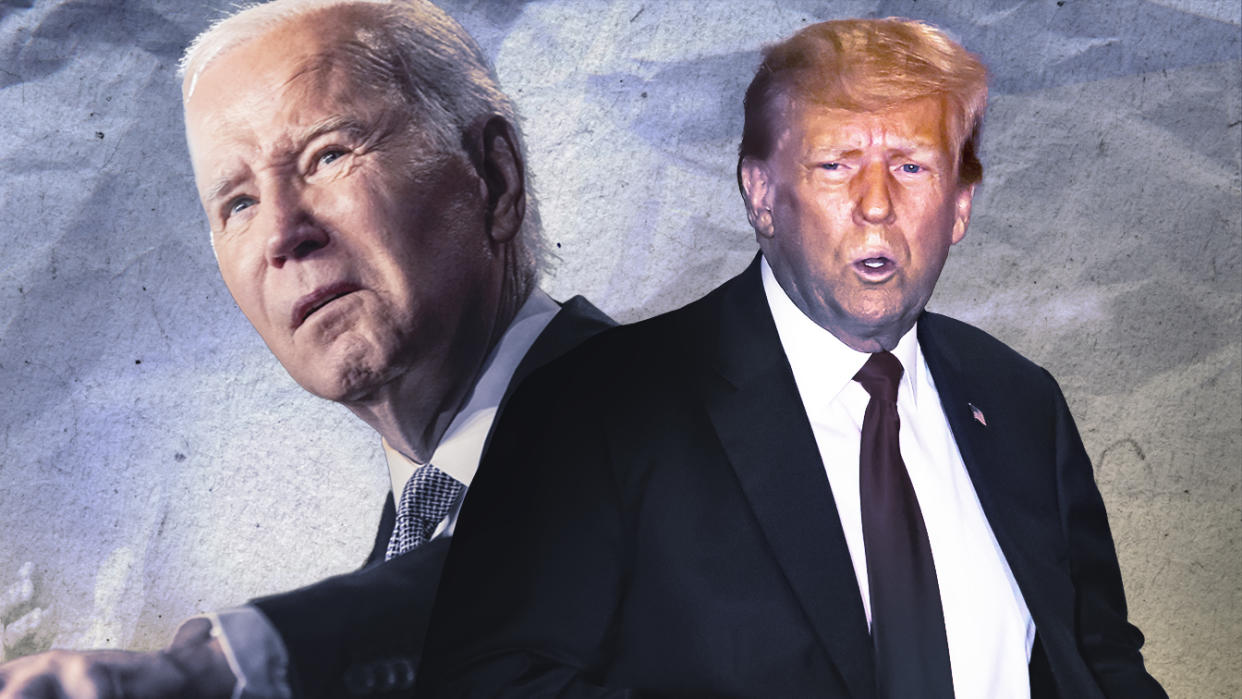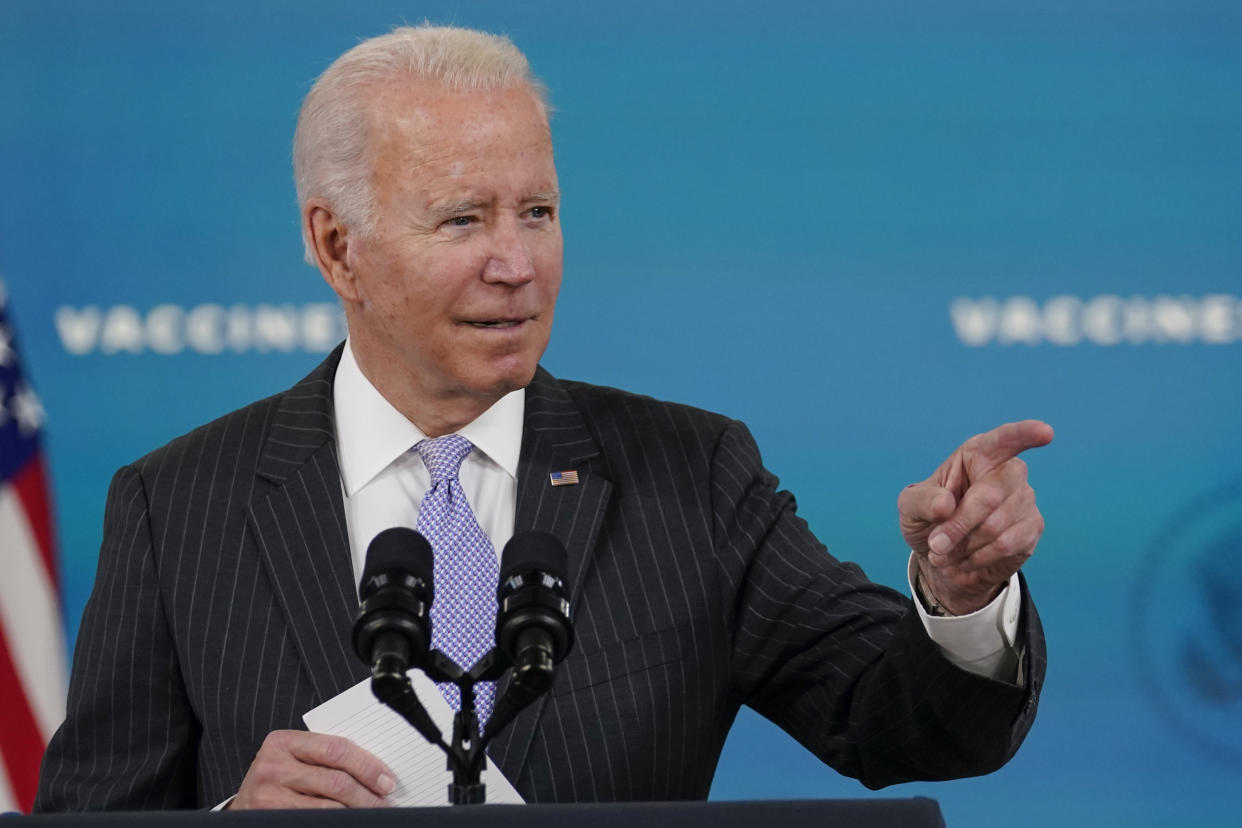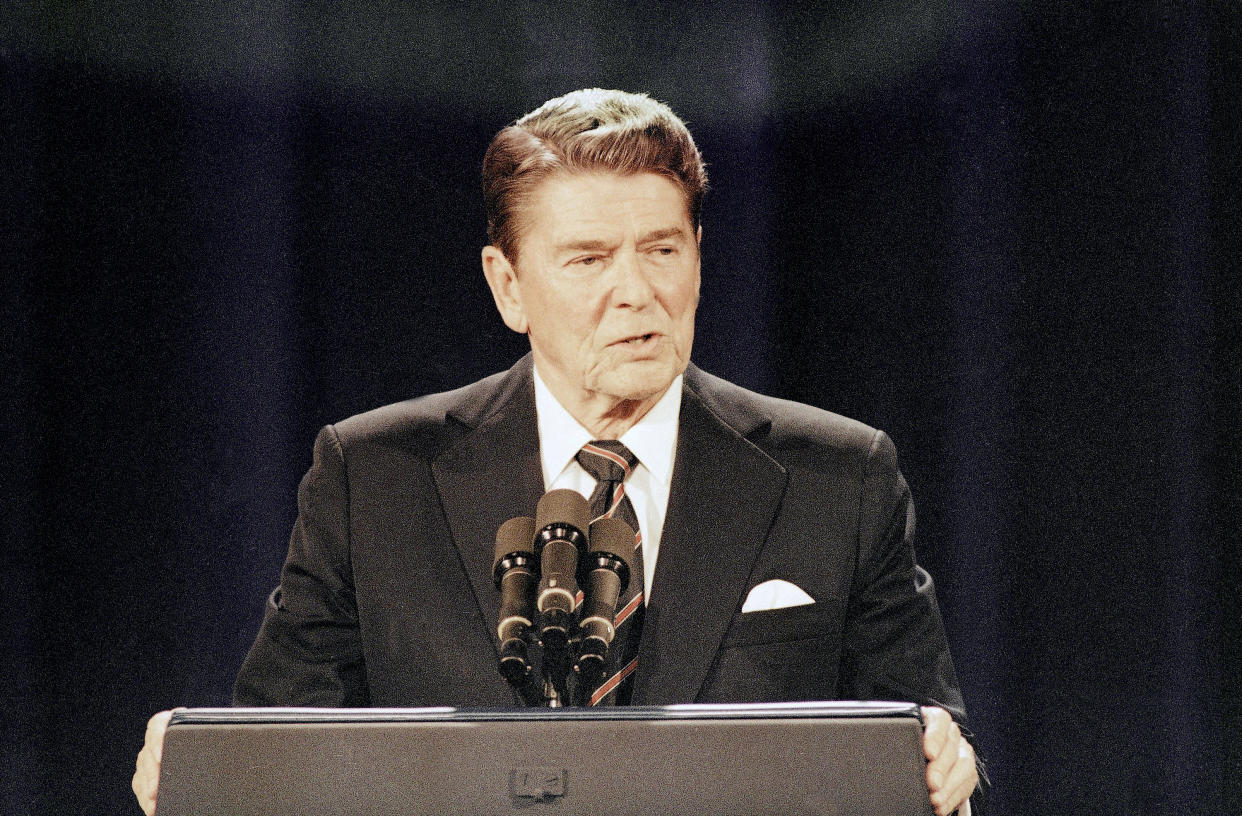Are Biden and Trump too old to be president?

Already the oldest person to ever serve as president of the United States, 80-year-old Joe Biden announced Tuesday that he will seek another four-year term.
In a video and a Washington speech to union leaders, Biden made no mention of his advanced age, instead touting his first-term accomplishments and portraying the campaign ahead as a battle to protect "fundamental freedoms" that are under threat from GOP extremists.
His chief Republican rival in 2024, former President Donald Trump, will turn 77 in June, meaning that both men hoping for another four years in the White House are already older than the average male life expectancy in the United States of 74.5 years of age. Each is also more than a decade past the average retirement age, 65, for American men.
Age, as the saying goes, may indeed be just a number, but many U.S. voters believe Biden and Trump have counted too many birthdays to once again hold the most powerful office in the land. Sixty-eight percent of U.S. adults surveyed in a Yahoo News/YouGov poll released in February said Biden, who will turn 82 shortly after the 2024 election, is "too old for another term as president." Forty-five percent said the same about Trump, who, if victorious in 2024, would turn 79 seven months into the term.
'The brain does not get bigger with age'
A 2006 study published in the Postgraduate Medical Journal confirmed that the human brain "shrinks with increasing age" and that "the volume of the brain and/or its weight declines with age at a rate of around 5% per decade after age 40, with the actual rate of decline possibly increasing with age, particularly over age 70."
“There’s shrinkage with time," Dr. Claudia Kawas, a professor of clinical neurology at the University of California, Irvine, told Yahoo News. "Just like nobody gets taller with age, they get shorter. The brain does not get bigger with age, and if it does it’s definitely not a good thing. The strongest correlate of atrophy is age, not disease.”
Advanced age has been correlated with an inability to "find words and recall names," as well as "problems with multitasking" and reduced "ability to pay attention," the National Institutes of Health states on its website.
“What people have the most trouble with when it comes to age is what we describe as word finding,” Kawas said. “That’s different than being given a word and not knowing what it means.”

Just as many of Biden's Republican foes regularly point to his halting speaking style — some of which stems from a lifelong stutter — and his routine verbal gaffes as evidence that he is too old to serve as president, Trump's speech has also received critical attention.
In 2017, the journal STAT interviewed experts in neurolinguistics and cognitive assessment to compare Trump's speaking habits over the last few decades. They concluded that, since the 1980s and '90s, when he "used sophisticated vocabulary" and "spoke articulately," big changes had occurred.
"Now, Trump’s vocabulary is simpler. He repeats himself over and over, and lurches from one subject to an unrelated one," the article concluded.
To be sure, a comparison between Biden's speech today versus that from when he served in the Senate also reveals changes in his delivery. The question is whether the surface changes to each man's verbal abilities indicate a greater cognitive impairment.
Before either Trump or Biden took up residence in the White House, former President Ronald Reagan faced similar scrutiny. A 2015 analysis by Arizona State University researchers published in the Journal of Alzheimer's Disease linked changes in Reagan's speech patterns with the onset of dementia.
"We watched, as far as I’m concerned, a president develop dementia while he was in office," Kawas said. "Comparing Reagan and [former President Jimmy] Carter, cognitively they were two completely different people in their 90s. Reagan was quite severely with dementia by the time he died in his early 90s. Carter is in his late 90s now and is still, in a lot of ways, cognitively put together.”

But Kawas is quick to point out that it is virtually impossible to predict whether age could prove a bigger short-term liability for Biden or for Trump.
"Variability is the hallmark of aging," she said, adding, “Just because Biden is older, it’s not completely clear to me that he has progressed more or is further along than Trump, who, in all fairness, is not that much younger, really.”
'A lifetime of accumulated knowledge'
Since everyone feels the effects of age differently, experts say it's best to avoid making blanket pronouncements about when a person is too old for a given job.
“There are huge individual differences when we get older in terms of all the cognitive abilities, reasoning, problem solving, linguistic skills, attention and aspects of memory," Dr. Arthur Kramer, director of the Center for Cognitive and Brain Health and professor of psychology at Northeastern University, told Yahoo News. "So not everybody ages at the same rate, by any means.”
Research has also shown that more life experience can be a cognitive asset.
"Aging may also bring positive cognitive changes. For example, many studies have shown that older adults have more extensive vocabularies and greater knowledge of the depth of meaning of words than younger adults," the National Institutes of Health states. "Older adults may also have learned from a lifetime of accumulated knowledge and experiences. Whether and how older adults apply this accumulated knowledge, and how the brain changes as a result, is an area of active exploration by researchers."
As the standard bearers for their respective parties, Trump and Biden enjoy strong partisan allegiance. Eighty percent of Democrats in a new Yahoo News/YouGov poll said they approve of the job Biden is doing, while 72% of Republicans surveyed in a Quinnipiac poll released in March said Trump has "had a mainly positive impact on their party."

At the same time, however, 45% of Democrats said they believe Biden is too old to serve another term, while 32% of Republicans said the same of Trump, for whom questions of mental fitness led his own Cabinet members to discuss invoking the 25th Amendment following the riot at the U.S. Capitol on Jan. 6, 2021.
While perceptions about how old is too old to be the U.S. president vary, Kramer is against formalizing any arbitrary limit.
“I think that’s a mistake, mostly because of the huge individual differences which depend, in part, on how you live your life, whether you’ve taken care of yourself and, in part, on our genetics,” he said.
Fears about the risks of electing a president experiencing mental decline may be somewhat overblown, both Kramer and Kawas said. Even a president like Reagan, who experts believe had started showing some signs of dementia while still in office, was aided by a staff who helped mitigate the possible dangers posed by age.
“I guess the question is, what are we worried that they’ll do?" Kawas said. “I don’t think somebody who is developing Alzheimer’s disease is going to automatically, for some reason, begin pushing nuclear buttons or anything like that. But they’re not going to be able to make as thoughtful decisions in some realms.”
Testing mental competency

In the kickoff to her own presidential campaign, former South Carolina Gov. Nikki Haley, who is 51, took aim at both Biden and Trump for how old they are.
“In the America I see, the permanent politician will finally retire,” she said in a February speech in Charleston, S.C. “We’ll have term limits for Congress and mandatory mental competency tests for politicians over 75 years old.”
While not against the idea of giving cognitive tests to presidential candidates, Kramer thinks such measures shouldn't be required solely based on what year a person was born.
“I would argue that if we’re going to do a cognitive competency test, it should be independent of age. I know a lot of 40-year-olds who couldn’t do the job,” he said.
In addition to verbal and written tests, there are imaging techniques called positron emissions tomography, Kramer added, that allow neurologists to identify plaques and tangles in the brain, the precursors that are associated with Alzheimer’s disease. But even those don't tell you how a condition will progress.
"You can have an indication of whether there’s a lot of pathology or less pathology," he said, "but some people cope better with pathology than others, and we’re not sure exactly why.”
During the 2020 campaign, Trump sought to draw a distinction between himself and Biden by revealing that he had been given a test called the Montreal Cognitive Assessment, which is used to detect cognitive impairment. While boasting that he had received a perfect score, he tried to suggest that Biden would have failed the assessment.
“Joe doesn’t know he’s alive, OK? He doesn’t know he’s alive," Trump told then-Fox News host Chris Wallace.
Like Wallace, who took the same test himself, Kramer explained that passing it is not exactly an indicator of higher intelligence.
"There are a few of them, and the questions are like, ‘What day is today?’ ‘Who is the president?’ ‘Who was the last president?’ These are a good place to start if you’re trying to diagnose dementia as a neurologist, but they’re crude," Kramer said. "The fact that he was proud that he did well on that — well, most people do well on that.”
In other words, tests like those proposed by Haley, or the brain scans used by neurologists, for that matter, may give voters only so much information about the candidates on a ballot.
